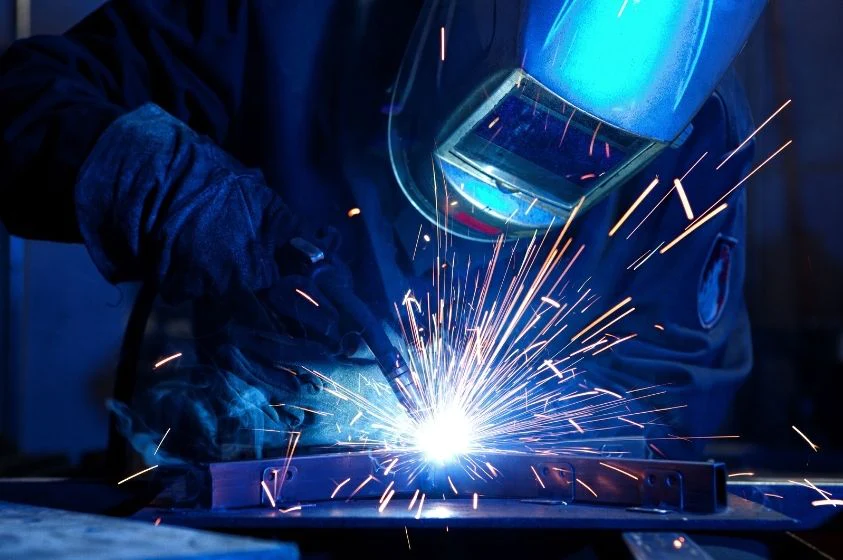Welding plays a pivotal role in various industries, from construction to manufacturing, automotive, aerospace, and beyond. In Canada, the demand for skilled welders continues to grow, presenting promising opportunities for individuals looking to pursue careers in this field. This article delves into the landscape of welding jobs in Canada, examining the opportunities, challenges, and emerging trends shaping the profession.
The Demand for Welders in Canada
Canada’s robust economy, coupled with ongoing infrastructure projects and industrial developments, fuels the demand for skilled welders across the country. From building bridges and pipelines to fabricating machinery and constructing buildings, welding is integral to numerous sectors.
The oil and gas industry, particularly in provinces like Alberta and Saskatchewan, relies heavily on welding expertise for pipeline construction and maintenance. Similarly, the construction sector, buoyed by urban development and infrastructure renewal projects, offers significant opportunities for welders.
Moreover, Canada’s burgeoning manufacturing industry, including automotive and aerospace sectors, requires skilled welders to fabricate components and assemble structures with precision and efficiency. As such, the demand for welders remains steady, creating a favorable job market for aspiring professionals.
Types of Welding Jobs
Welding encompasses various techniques and specializations, each catering to specific industries and applications. Some of the prominent welding jobs in Canada include:
- Structural Welding: Structural welders work primarily in construction, fabricating and assembling steel frameworks for buildings, bridges, and other infrastructure projects.
- Pipeline Welding: Pipeline welders specialize in joining sections of pipelines, ensuring structural integrity and compliance with industry standards, particularly in the oil and gas sector.
- Pressure Vessel Welding: Pressure vessel welders weld components used in boilers, storage tanks, and other vessels subjected to high pressure or temperature conditions.
- Manufacturing Welding: Welders employed in manufacturing plants fabricate components for machinery, vehicles, and equipment, adhering to precise specifications and quality standards.
- Aerospace Welding: Aerospace welders work in specialized facilities, fabricating and repairing aircraft components, adhering to stringent safety and quality requirements.
Challenges and Considerations
Despite the promising outlook, welding careers in Canada come with their share of challenges and considerations:
- Skills Shortage: The aging workforce and a lack of new entrants into the welding profession have led to concerns about a skills shortage in Canada. Encouraging more individuals, including women and underrepresented groups, to pursue welding careers is crucial for addressing this challenge.
- Technological Advancements: Rapid advancements in welding technology, including automation and robotics, are reshaping the profession. While automation enhances productivity and precision, it also necessitates upskilling and training for welders to adapt to evolving technologies.
- Safety and Health Hazards: Welding involves exposure to various safety and health hazards, including fumes, ultraviolet radiation, and noise. Employers must prioritize workplace safety by implementing stringent safety protocols and providing appropriate personal protective equipment (PPE) to mitigate risks.
- Certification and Qualifications: Employers often require welders to possess relevant certifications and qualifications, such as Canadian Welding Bureau (CWB) certification or Red Seal endorsement. Obtaining these credentials demonstrates proficiency and enhances employment prospects.
Trends Shaping the Future of Welding Jobs
Several trends are reshaping the landscape of welding jobs in Canada:
- Sustainable Practices: With growing emphasis on sustainability and environmental stewardship, there is a rising demand for eco-friendly welding techniques and materials. Welders proficient in sustainable practices, such as recycling and minimizing waste, are poised to thrive in this evolving landscape.
- Digitalization and Remote Monitoring: The integration of digital technologies, such as Internet of Things (IoT) sensors and remote monitoring systems, enhances welding processes by providing real-time insights into performance and quality. Welders adept at leveraging digital tools and analytics gain a competitive edge in the industry.
- Diversification of Applications: Welding techniques are increasingly applied in diverse fields beyond traditional industries, including renewable energy, marine engineering, and even artistic endeavors. As new applications emerge, welders with versatile skills and adaptability are well-positioned to explore exciting career opportunities.
Conclusion
In conclusion, welding jobs in Canada offer a promising pathway to a rewarding and fulfilling career. The demand for skilled welders spans various industries, presenting ample opportunities for employment and professional growth. However, aspiring welders must navigate challenges such as skills shortages, technological advancements, and safety concerns while embracing emerging trends shaping the future of the profession. By acquiring relevant skills, certifications, and staying abreast of industry developments, welders can embark on a successful journey in Canada’s dynamic welding sector.

